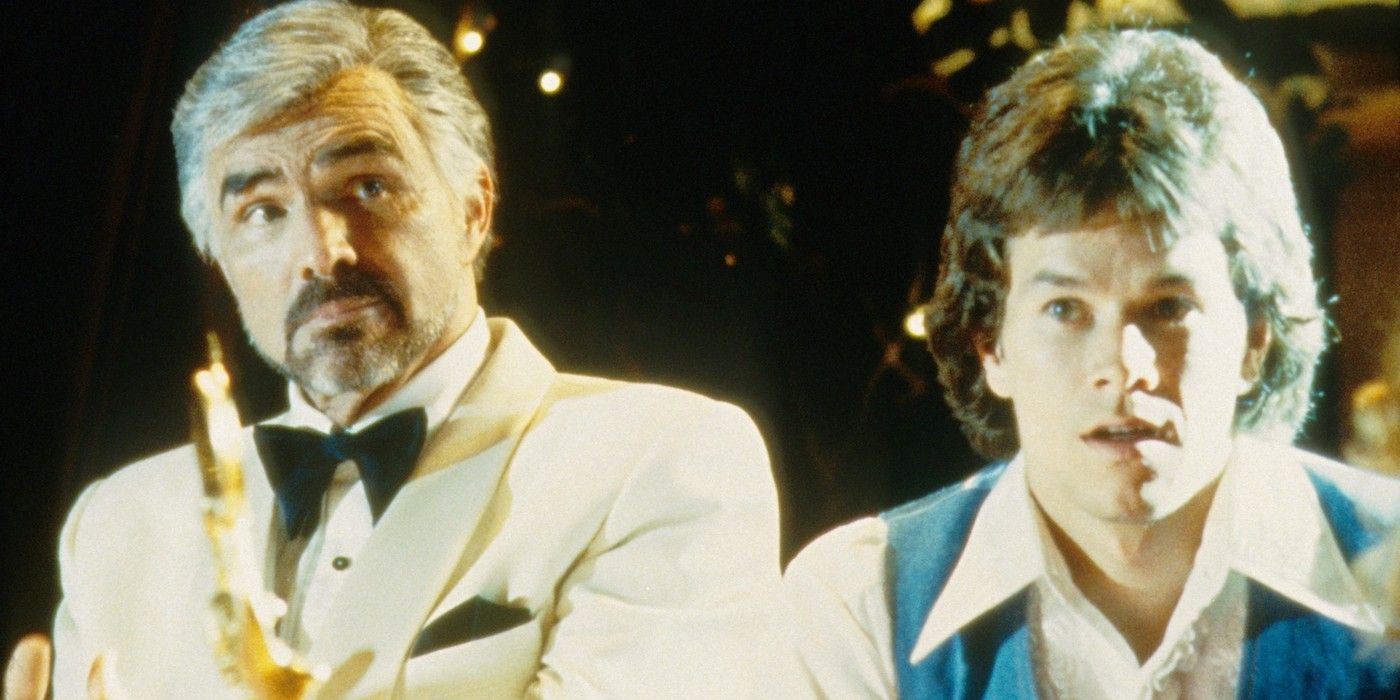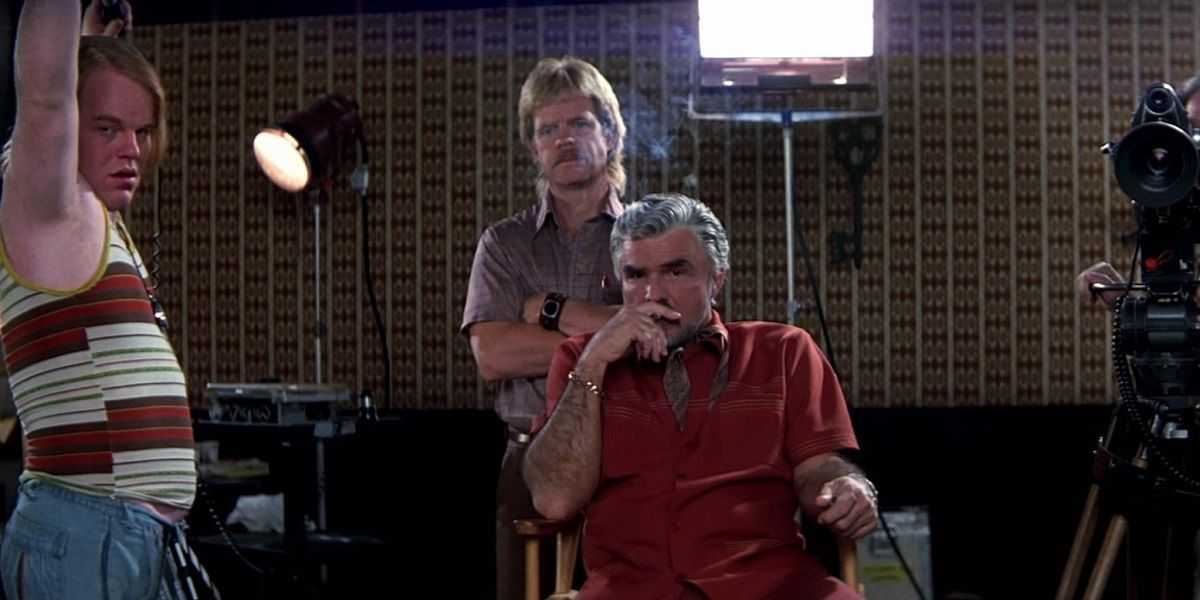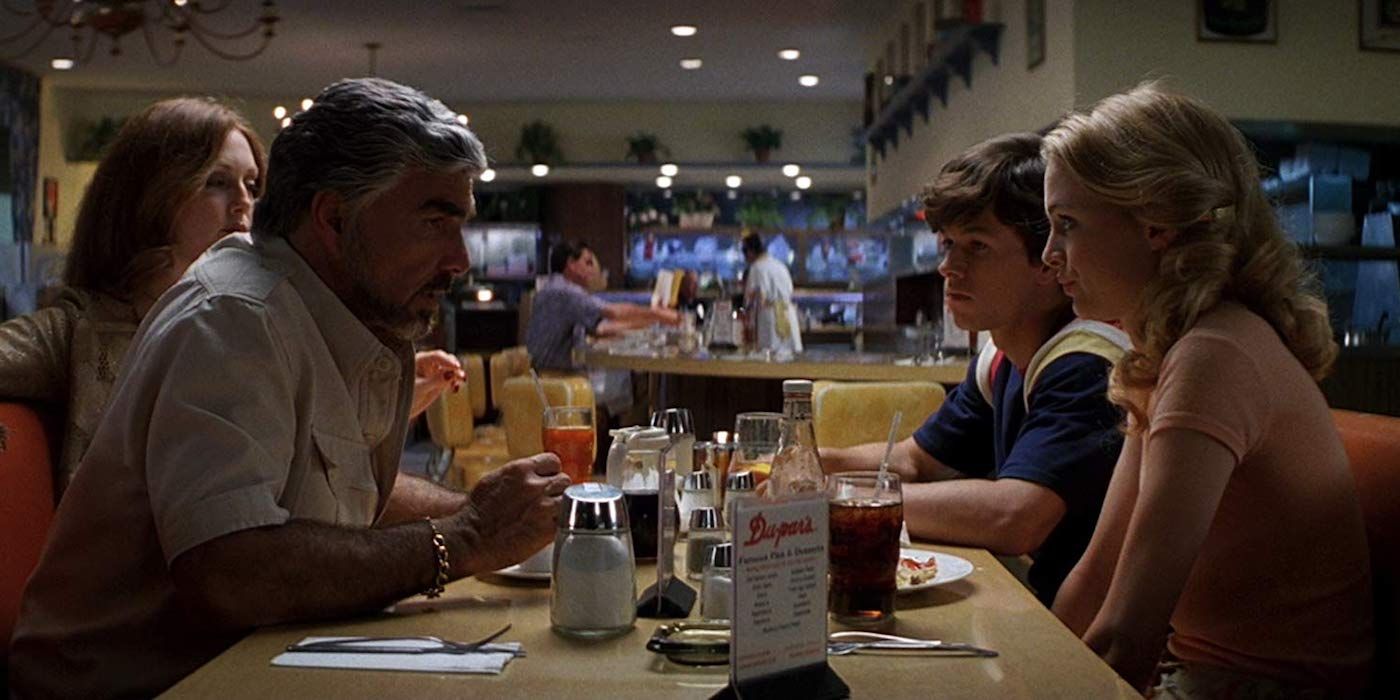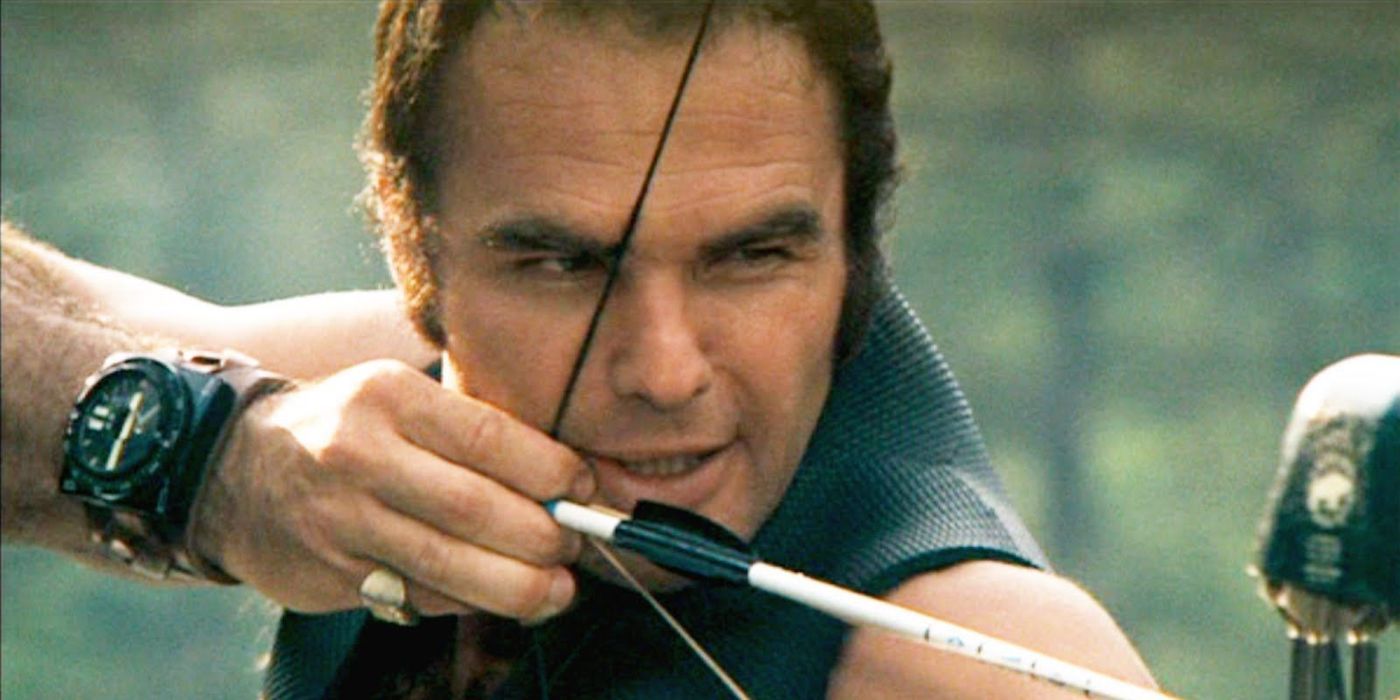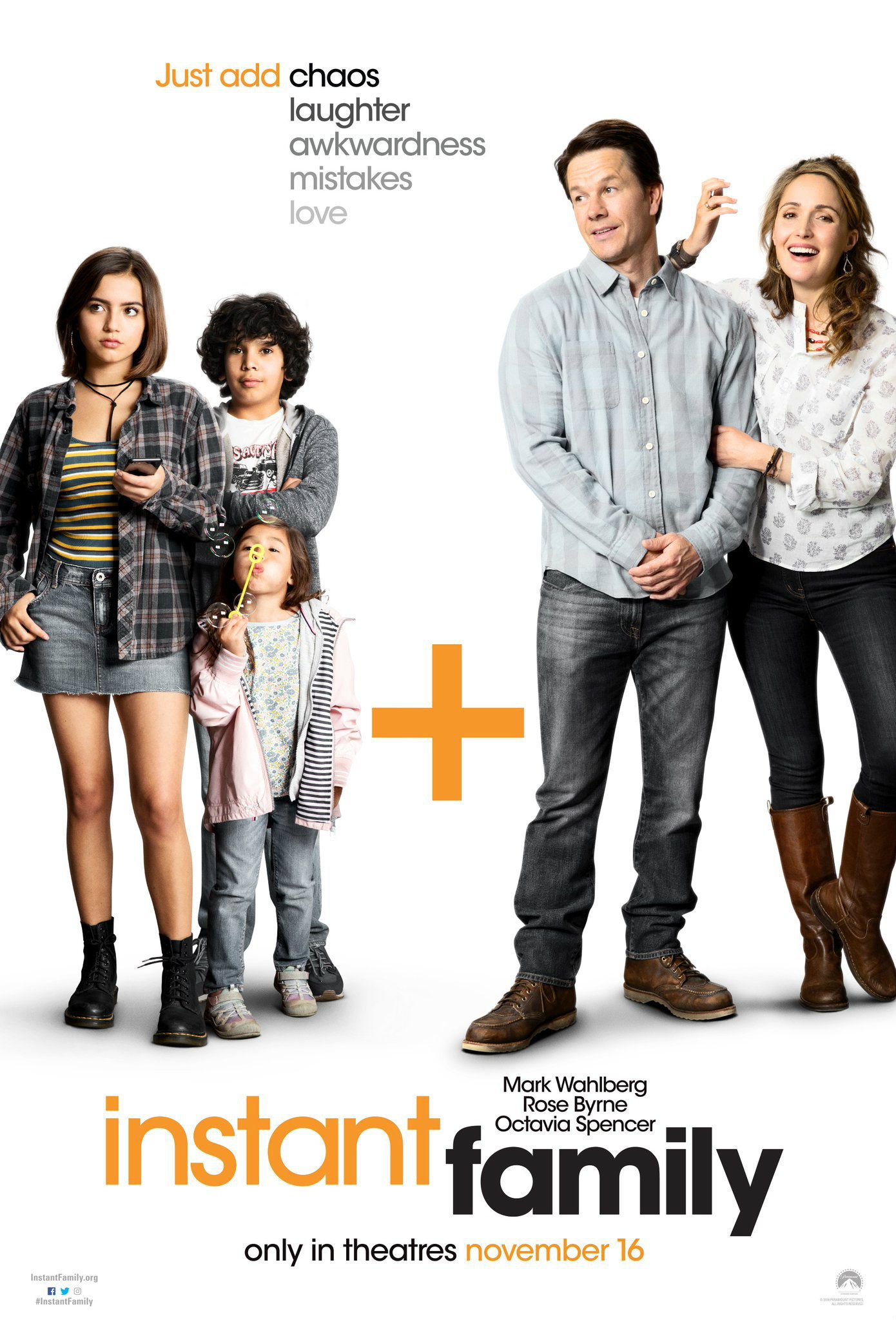Mark Wahlberg is one of the biggest movie stars in the world. From awards-season darlings like The Fighter and The Departed, to jolly comedies like The Other Guys and Ted, to action extravaganzas like Transformers: Age of Extinction and Mile 22. His latest film, Instant Family, sees him play the role of a patriarch who, along with his wife, played by Rose Byrne (X-Men: First Class, Bridesmaids), adopt a trio of siblings of varying ages, forming a decidedly unconventional – if no less loving – type of family unit.
At a press junket for Instant Family, we asked Wahlberg about one of his first leading roles, in the critically-acclaimed pornography-themed opus, Paul Thomas Anderson's Boogie Nights. In addition to starring the young and somewhat unproved future A-lister, the sprawling ensemble cast included huge names like Julianne Moore, Philip Seymour Hoffman, William H. Macy, and Don Cheadle. Of the film's massive and popular cast, none were as revered as the actor playing director Jack Horner, the late legend, Burt Reynolds.
Related: Burt Reynolds Passes Away at 82
Simply put, Burt Reynolds is one of the most popular movie stars of all time, and was a massive box office draw in the 1970s and 1980s. Through movies like Deliverance, Smokey and the Bandit, and The Cannonball Run, Reynolds became a crowd-pleasing icon for the ages, someone who appealed to both men and women for his jolly on-screen demeanor and palpable sex appeal in equal measure.
Boogie Nights Revived The Career Of Burt Reynolds
By the mid-1990s, Reynolds' star had become somewhat faded. His hit CBS sitcom, Evening Shade, had ended its run and Burt was gaining significantly more press from his high-profile divorce from Loni Anderson than from any of his onscreen work. It was during this creative low point that the actor was offered a game-changing role in Boogie Nights.
After reluctantly accepting the role of Jack Horner, an auteur director of X-rated skin flicks, Reynolds infamously had a difficult time on set, often clashing with director Paul Thomas Anderson and objecting to the content of the movie. As he recounted in his 2015 memoirs, But Enough About Me, the production was a challenge: "Boogie Nights revived my career, but I did my best not to do it." Regarding the director, Reynolds humorously recalled: "I wasn't crazy about being (directed) by a guy who's younger than some sandwiches I've had. On the other hand, it was refreshing to find a young filmmaker with a sense of the history of our business."
Ultimately, the film proved to be a massive critical darling, and a strong commercial performer, grossing over $43 million worldwide off a budget of just $15 million. For his performance as Jack Horner, Burt Reynolds was nominated for a bevy of awards. While he won the Golden Globe, the vaunted Academy Award was instead given to Robin Williams for his role in Good Will Hunting.
Mark Wahlberg on Working Alongside Burt Reynolds
While Burt Reynolds was the proverbial "comeback kid," the film was an equally strenuous trial-by-fire for Mark Wahlberg. While the young actor had appeared in a handful of other acclaimed films, such as Fear and The Basketball Diaries, Boogie Nights was his first outing as a legitimate leading man. Basically, his performance in Boogie Nights would determine if Wahlberg was a working actor or a bona fide movie star.
Obviously, followers of the movie business know how that story turned out. As Reynolds wrote in his book, "Mark is a talented guy who doesn't need gimmicks. I'm glad he's proven what he can do in a bunch of films since Boogie Nights."
When we asked Wahlberg about working with Reynolds more than twenty years ago, his face lit up with a cross of nostalgia, sadness, and melancholy reminiscence:
He said I reminded him a lot of his son, which was really nice, and he certainly was a father figure to my character. It was like this cool dysfunctional family that was created. God, Burt was a legend! It's no secret that he had a hard time with the movie. He was certainly surprised at the attention and accolades that he got. I think it was probably hard for him, having been the biggest box office star in the world for such a long time, I think it was hard for him to say some of the lines.
Indeed, in his book, Reynolds recalls being instructed to deliver a particularly raunchy line of dialogue which he simply refused to say, and nearly coming to blows with Anderson. He credits producer John Lyons from preventing him from slugging the young director right in the mouth. However, Wahlberg posited the notion that perhaps Reynolds' discomfort with the role led to such a universally acclaimed performance, suggesting that his situation reflected that of his character during the movie's emotionally-charged scenes, intentionally or not:
I think maybe it was him just really being method. Ya know, when Dirk and Jack were no longer working together, and he had to make these straight-to-video movies that had no story... It seemed painful for him to go through that process. But he was fantastic in the movie. He was always very good to me. I remember being at the New York Film Festival, and people were loving his performance. I just wish that he had loved the movie as much as everybody else did.
While Burt Reynolds was a strong contender during awards season, and even the favorite to win the Oscar, history didn't play out that way. The Oscars are not an exact science, and it's a poorly guarded secret that there is so much more that goes into deciding who wins what award than the merit of the nominees; actor George C. Scott put it best when he dismissed the whole institution as nothing more than an empty "meat parade."
Related: Mark Wahlberg Reflects on Tim Burton's Planet of the Apes Reboot
In his opinion, Mark Wahlberg believes that Burt's own recalcitrance towards the movie, the very trait which perhaps made his performance Oscar-worthy in the first place, may have been the factor which kept him from bringing home the gold during the 1998 Academy Awards ceremony:
I know how important it was for him to be recognized for his work. But with politics and everything else, I think, had he kind of embraced the movie from the outset, he would have won the Academy Award.
Of course, it's impossible to know for sure how things would have played out under different circumstances. If Reynolds had been gung-ho and supportive of the film from the beginning, would his performance have been as emotionally raw and vulnerable as what audiences experienced in the final version of Boogie Nights? On the other hand, if he had expressed more diplomacy and less overt hostility while making the film, would the Academy be more accommodating to reward what may have been a lesser display of acting? It's a classic catch-22.
Burt Reynolds Was Snubbed By The Oscars For Deliverance
In a way, the messy situation with Boogie Nights echoes Reynolds' first brush with Oscar potential. It came as a surprise to many when Deliverance was snubbed at the 1973 Academy Awards. The film was nominated for Best Picture, Best Director, and Best Film Editing, but failed to win in any of those categories, and none of the actors were nominated at all. Today, Deliverance is regarded as one of the greatest films of the 1970s and a seminal work of timeless Americana. However, unlike some timeless classics, Deliverance was also a critical and commercial hit upon its initial release, grossing $46 million off a budget of just $2 million, and garnered excellent reviews from top critics of the day. With all this in mind, why didn't Deliverance win any Oscars? Sure, it came out the same year as The Godfather, but perhaps there's another, more political reason.
As Burt explains in But Enough About Me, the blame rests squarely at his feet. Three months before the film opened in theaters, in April 1972, Reynolds appeared, fully nude, in the pages of Cosmopolitan magazine. The images from that shoot are legendary, a virile mix of naked skin, exposed chest hair, and raw, unbridled, primal sexuality. In the iconic images, Burt is effortlessly charming, wearing nothing but a smile and his signature mustache (and the aforementioned body hair). The magazine was a hit, selling out its entire run of one and a half million copies, but also turning Reynolds into a notorious figure. Today, the Academy is often criticized for being old-fashioned, out of touch, and uptight – one can only imagine how exacerbated these traits were back in 1972. He writes in his memoirs:
It was a total fiasco. I thought people would be able to separate the fun-loving side of me from the serious actor, but I was wrong... I sorely regret doing it. It's been called one of the greatest publicity stunts of all time,but it was one of the biggest mistakes I've ever made, and I'm convinced it cost Deliverance the recognition it deserved.
By the end of his life, Burt Reynolds had accomplished more than most actors could ever imagine. There's no doubt his career had its ups and downs, but when one lives a life outside of the realm of mere mortals, the highs are spectacular, and even the lows produce some truly incredible stories. Consider, had Burt's career not been where it was in the mid-1990s, he probably would never have been convinced into starring in Boogie Nights, one of the most important roles of his life.

